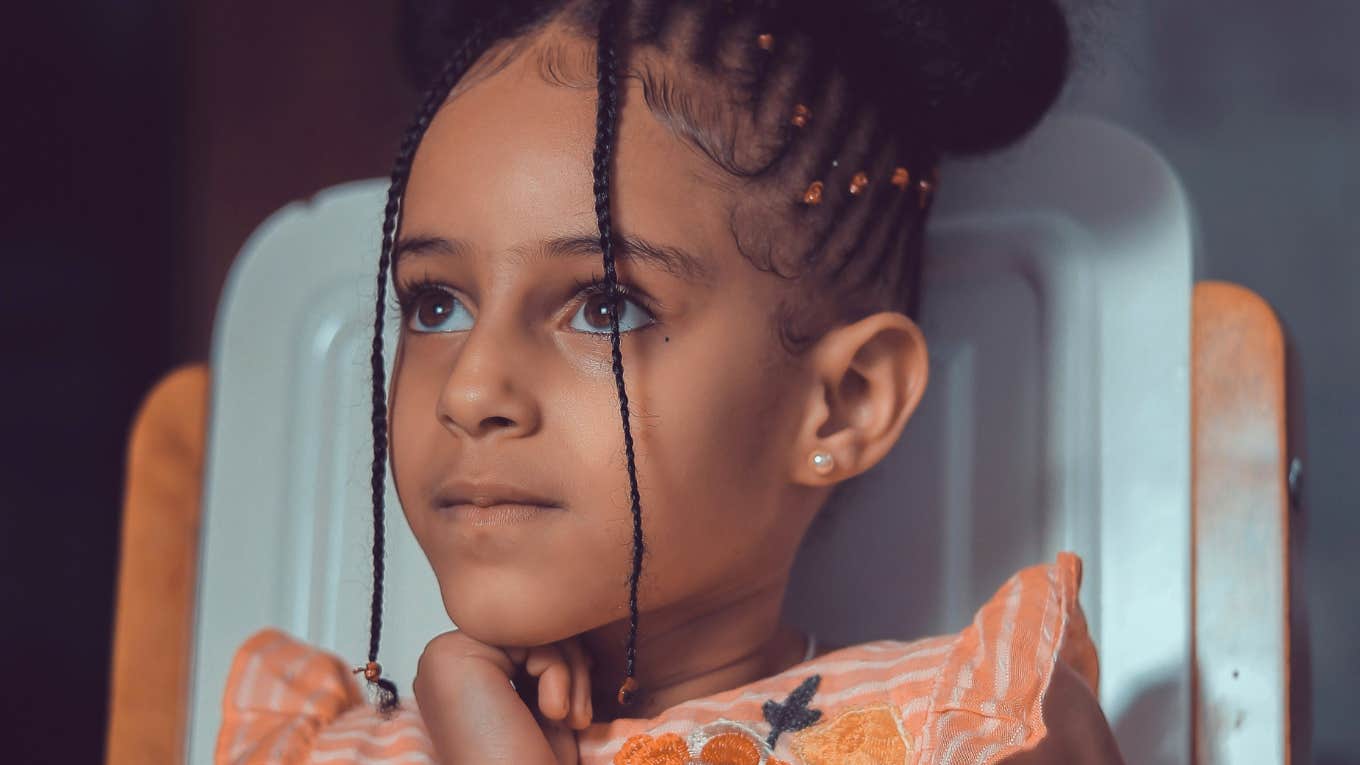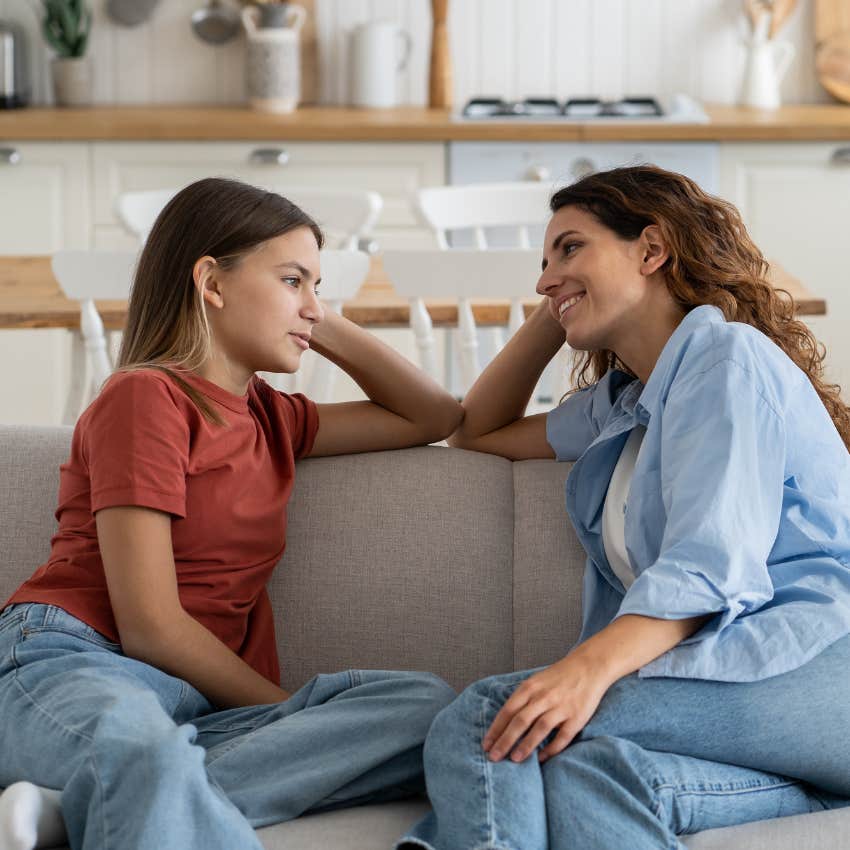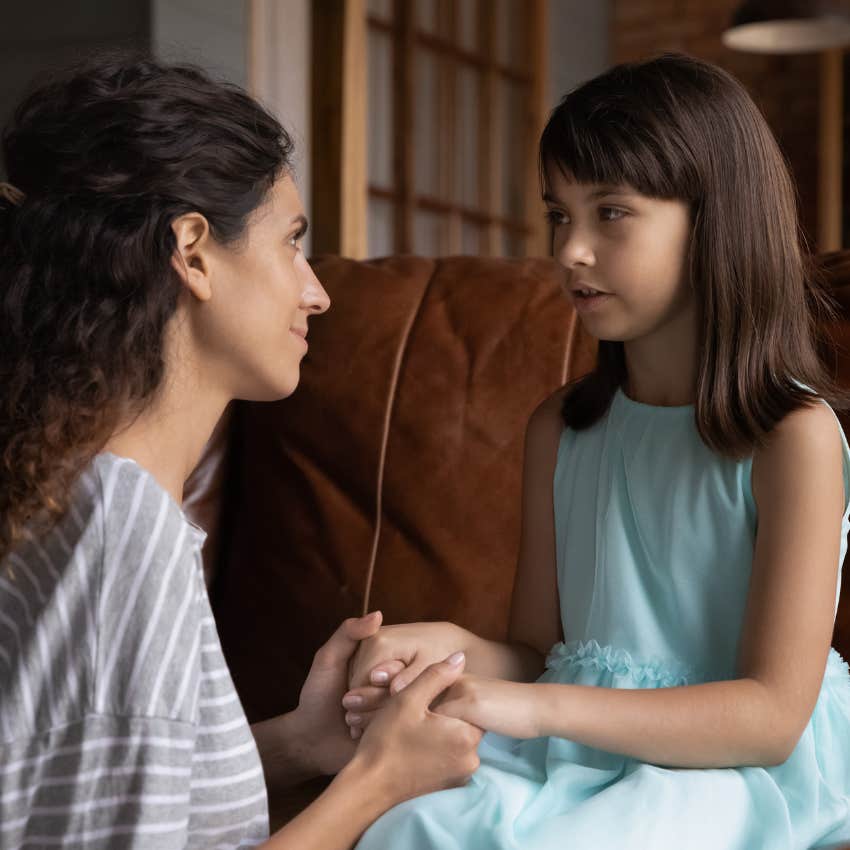If Your Goal Is For Your Child To Be In A Good Marriage Someday, Start With These 5 Lessons
The foundation for a healthy future relationship starts long before they fall in love.
 Gift Habeshaw | Unsplash
Gift Habeshaw | Unsplash One thing I know more than anything else is how hard it is to be a parent. We are thrown into the job with no training, and it’s a total crap-shoot as to how successful we will be. Now that I am a parent, there are things that I wish my parents had taught me about being in a good marriage someday.
When they had me back in 1965, my parents had nothing but good intentions. I also know that they were young and inexperienced and didn’t necessarily have the best role models in their parents.
All that being said, there are some love and relationship advice I wish that they had passed on, things that I would not have had to figure out on my own. There are probably many things about falling in love, healthy relationships, and married life that adult children wish their parents had taught them.
If your goal is for your child to be in a good marriage someday, start with these 5 lessons:
1. Marriage is complicated
So here's the thing: I knew from observation that my parents’ marriage was challenged. I knew that my mom put my dad firmly behind the kids and the dogs on her priority list, that she snapped at him easily, and that he retreated into his office soon after we had dinner.
What I didn’t know was why all of this happened. I went into my marriage with the knowledge of how my parents treated each other, but I had no idea how, in the context of marriage, to prevent it from happening.
Before I knew it, my husband was firmly behind the kids and the dogs on my priority list, and I treated him terribly, and he retreated into his office nightly. And, like my parents, we ended up divorced.
I wish my parents had sat me down before I got married and given me some marriage advice. I wish they talked about their experiences in their marriage, what they would have done differently, and what they have learned in the ensuing years.
I have already talked to my 20-year-olds about what happened in my failed marriage, not placing blame but talking about circumstances and being human.
2. Fidelity is important
 DimaBerlin / Shutterstock
DimaBerlin / Shutterstock
Fidelity was not a theme that played out in my parents’ marriage. It was the 70s, and women had just entered the workforce, and at-work relationships were becoming more and more the norm.
And it wasn’t just my dad who strayed. My mom fell back in love with a man she had known before she was married.
So the model for me when I was in my teens, in those super important years where we learn from the example our parents set about how love and relationships work, was two parents who weren’t committed to each other. And two parents who were lying to each other and us about this very important thing.
I have to admit that, perhaps because of this example, fidelity has not been something I have always practiced in relationships. I know that it has played a great part in why I have had so many failed ones. I just haven't been able to commit to anyone in a way that makes for fulfilling, long-lasting love. I am learning, but it would have been a huge gift to know how to do so a long time ago.
Research has shown that parents' marital quality and behaviors can significantly influence their children's future relationships, including their capacity for fidelity and commitment. Positive parent-child relationships and parental modeling of healthy relationship behaviors are key factors in shaping children's expectations and behaviors.
3. Mental illness can run in families
I spent a substantial part of my life depressed. I lived with a constant sense of hopelessness and despair.
I hated every part of my life and didn’t understand why anyone would want to live. I didn’t know that I was different from everyone else, and I thought that everyone hated living as much as I did.
My mother used to come up to my room and yell at me because I didn’t ever want to leave it. She accused me of being rude and lazy, and selfish. She would berate me for being shy at social functions and for sleeping so much. It was not fun to be me.
When I was 42, I was diagnosed with bipolar II disorder. When I called my mother to tell her, she said, "Oh, your grandfather and your great-grandfather both had bipolar disorder." Seriously?
What a gift it would have been all those 42 years if I had had a name for how I was suffering. Perhaps I could have been treated, and my life might not have been the way that it was for so many years. But mental illness was not something that was talked about back then. I so wish it had been.
Do you want to talk about things your parents didn't say? I will listen. While research directly linking parental education about mental illness to their children's future marriage success isn't readily available, there's strong evidence suggesting that open communication about mental health within a family can contribute to healthier relationships and overall well-being in children.
Open communication about mental health can strengthen family bonds and create a supportive environment. This can provide a strong foundation for children as they develop their own relationships.
4. Don’t be intimate with someone just because they want to
I don’t ever remember having the love/intimacy conversation with my mom. I am guessing we had it, but perhaps not. What I do know is that she never told me that I needed to enter the world of boys with caution.
When boys discovered me, I was young, naïve, and starved for love. My dad had recently moved far away with his new wife. I was lost and confused, and lonely. And then boys appeared.
There is nothing like a teenage boy to make a girl’s head spin. One was so charming and attentive and full of compliments.
I took his attention like I was starving, and when he wanted something from me in return for his attention, I was happy to oblige. He liked me, after all, so why not let him do what he wanted?
My relationship with this boy was over soon after, and I was left adrift, lonelier than before. A teacher took me under her wing and explained to me that what I had was precious and that I had to treat it that way. That I had to have respect for myself and not let anyone take anything away from me unless I wanted to give it.
I was confused at first, but thanks to her, I soon understood, and going forward, I was careful not to let any boy get the best of me.
One study explained that open and honest communication between parents and children about relationships and intimacy is essential. Parents play a crucial role in shaping children's understanding of relationships, including intimacy and marriage, by modeling healthy relationship behaviors and teaching them about consent, respect, and healthy boundaries.
5. It’s all about forgiveness
 fizkes / Shutterstock
fizkes / Shutterstock
My mother was the queen of holding a grudge. She loved people madly, but if they crossed her, she was done with them.
The list of people who “aren’t invited to my funeral” was quite a long one. My dad was on it. And my ex-husband. She would never get over the wrongs that either one of them had done to her and to those she loved.
This example did not serve us, kids, well. We learned to judge people for their actions and not to look at them with compassion and understanding of their humanness. As a result, we lost friends and lovers in our belief that we were always right and that those who had hurt us should be cast out.
It is really only now, in the aftermath of being left by my husband and the ensuing messiness, that I have learned to understand that we are all doing the best that we can and that to forgive is the best way to be able to move on healthily.
My mother died of pancreatic cancer at 72. I truly believe that at least some of her tumor was the result of hanging onto so much anger and resentment for so long. Not letting go of bad feelings is unhealthy not only for our minds, but for our bodies. If we can release them, they will not fester and cause damage.
Our parents do the best that they can with what they are given. No one gives us a manual about how to parent as we leave the hospital with our newborn child. All we know is what we already know. And we do the best we can with that knowledge.
What I do know is my parents loved me and took care of me and made me, at least in part, into the person that I am today. And for that, I am thankful.
Mitzi Bockmann is a NYC-based Certified Life Coach who works with individuals who strive to heal their toxic relationships so they can have their happily ever after. Mitzi's bylines have appeared in The Good Men Project, MSN, PopSugar, Prevention, Huffington Post, Psych Central, among many others.

